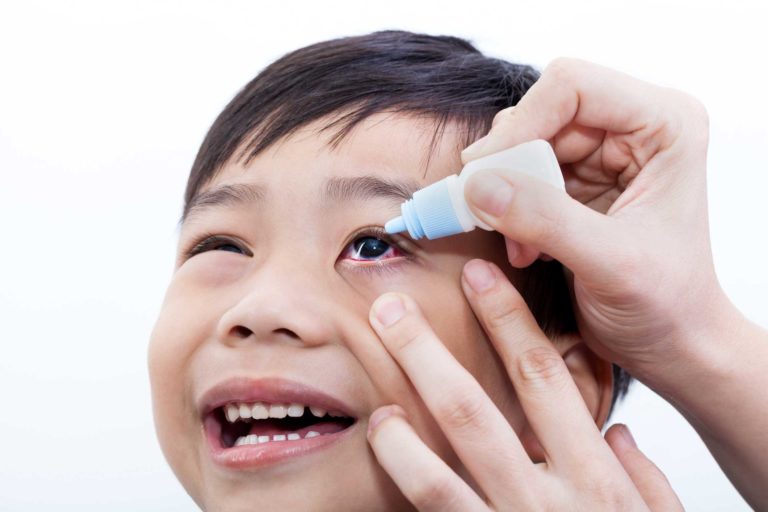
Pink eye is an infection in the eye ducts that can cause redness and puss from the eye.
It is more common among youth than it is in adults and is a common concern when kids go back to school each fall. Though it is highly contagious, it is easily treated with antibiotics and tends to heal quickly.
What Is Pink Eye?
Pink eye is an infection caused by direct exposure to bacteria and/or viruses that contaminate the eye. We know pink eye by the discoloration and irritation it causes in the infected eye. The medical term for pink eye is conjunctivitis, as the infection or inflammation affects the transparent membrane of the eyelid called conjunctiva. This membrane lines your eyelid and covers the whites of your eyes. Small blood vessels in the conjunctiva become inflamed, and the result is red or pink discoloration in the eye. Though uncomfortable, pink eye does not usually affect our ability to see.
How Can You Get Pink Eye?
There are multiple viruses that can cause pink eye. If your child is already sick and you suspect a viral infection, pink eye may arise as well.
Severe allergies can also cause inflammation of the conjunctiva and result in pink eye, too. Foreign objects in the eye, such as a chemical splash or waste, can also infect the eye and cause similar effects. In newborn babies, pink eye can be the result of a blocked or underdeveloped tear duct that is not completely open. If you use contact lenses for an extended period, similar inflammation can occur.
Symptoms to Look Out For
Symptoms of pink eye in children are fairly easy to spot. Here’s what to look for:
- Redness in the affected eye
- Itchiness in the affected eye
- Feeling of grit or another foreign object in the eye
- Discharge of a fluid which solidifies, preventing the eye to open (especially after sleep)
- Consistent overactivity of the tear duct
Pink Eye Prevention Plan
Though kids transfer pink eye pretty easily with close contact, you can help them avoid it by reminding them to watch their hands and avoid touching their face. If someone in your family has brought home the virus, be sure to give your towels, sheets, and washcloths a good wash to avoid cross-contamination or further spread.
When to Call the Doctor
Despite promoting good hygiene, children sometimes still get pink eye, but it’s not a cause for alarm. However, it should be treated as soon as possible to prevent worsening symptoms or spread of the virus that caused it. If you suspect your child has pink eye, call your pediatrician for prescription eye drops that will quickly take care of the infection and get your little ones back on the road to health.
The information and content on our website should not be used as a substitute for medical treatment or advice from your doctor.




